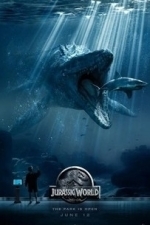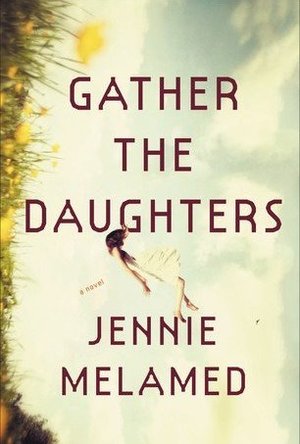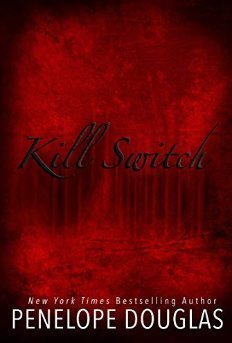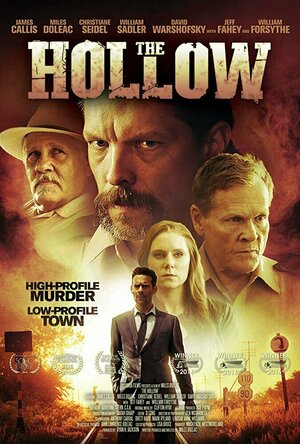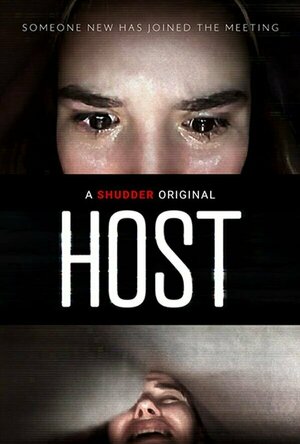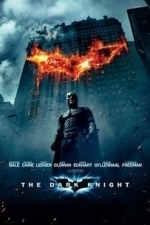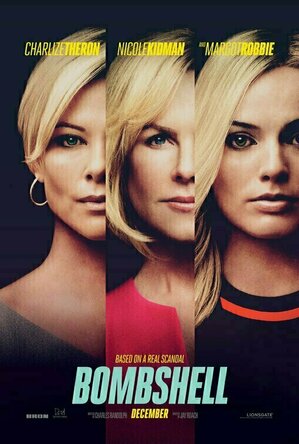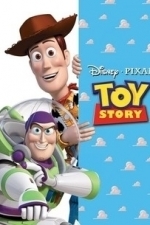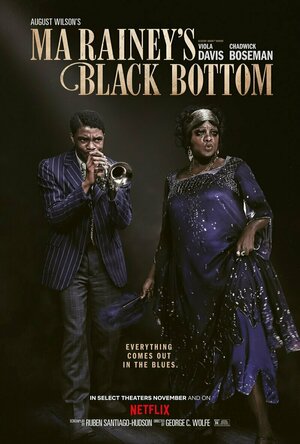Search
Phillip McSween (751 KP) rated Jurassic World (2015) in Movies
Sep 23, 2019
Take the Movie, Leave the Villain
It’s been some time since the catastrophe at the original Jurassic Park. Despite all of that, the powers that be have decided to monetize the dinosaurs and move forward with a plan to open the amusement park Jurassic World. Spoiler Alert: Chaos ensues. I was so excited when I learned the Jurassic Park franchise was being revitalized. I think that excitement may have turned into a bit of bias my first go round with Jurassic World as the second trip was a little more bumpy.
Acting: 10
A lot of times I will watch a movie and say, “This movie wouldn’t have been the same without X”. Chris Pratt was hands-down that actor. He plays Owen Grady, raptor trainer and overall badass. He offers some hilarity to a situation so crazy you kind of have to laugh at it. Speaking of comedic performances, Jake Johnson and Lauren Lapkus had me all the way cracking up. Their chemistry throughout was perfect.
Beginning: 3
This is the first point where this movie failed me a bit. This series has been known for its strong beginnings up to this point. It was almost as if the scriptwriters expected us to be entertained off of the series name alone. Wish there had been a little more “try” here.
Characters: 8
While I appreciated Owen’s character, there were a couple that just didn’t do it for me. Vic Hoskins (Vincent D’Onofrio) is the villain of the film. You know the type, someone that’s basically just there to be a roadblock. He was over-the-top aggressive and made the movie a bit of a nuisance at times.
Cinematography/Visuals: 10
Always a shining spot in this franchise. The park is captured magically from its rollercoasters to its extravagant hotel, the kind of place you would want to visit. I particularly love when they feed a shark on a stick to a titanic water dino who splashes just about everyone in the audience when he returns to the water. The final fight between the T-Rex and the “new breed” is fun to watch unfold.
Conflict: 8
Entertainment Value: 9
Memorability: 6
Pace: 7
The pace is somewhat slower than what I’m accustomed to with these movies. There is a lot of talking and walking around and you can’t help but wonder when the action is going to kick in again. Even when shit finally does hit the fan, there were a few moments of exposition I wish they would have done without.
Plot: 5
I can’t, for the life of me, begin to understand just why the hell anyone would think creating a park was a good idea. Then you had the military wanting to weaponize dinosaurs and some creature they made in a lab? Pick a lane, please! It’s a wonder I still managed to have a good time despite the craziness of the story.
Resolution: 8
Overall: 74
Jurassic World isn’t bad by any means. I do feel that it had great potential to do more and ultimately mean more. It’s merely satisfied with being a summer blockbuster which is fine. Just don’t expect it to go down as an all-time great.
Acting: 10
A lot of times I will watch a movie and say, “This movie wouldn’t have been the same without X”. Chris Pratt was hands-down that actor. He plays Owen Grady, raptor trainer and overall badass. He offers some hilarity to a situation so crazy you kind of have to laugh at it. Speaking of comedic performances, Jake Johnson and Lauren Lapkus had me all the way cracking up. Their chemistry throughout was perfect.
Beginning: 3
This is the first point where this movie failed me a bit. This series has been known for its strong beginnings up to this point. It was almost as if the scriptwriters expected us to be entertained off of the series name alone. Wish there had been a little more “try” here.
Characters: 8
While I appreciated Owen’s character, there were a couple that just didn’t do it for me. Vic Hoskins (Vincent D’Onofrio) is the villain of the film. You know the type, someone that’s basically just there to be a roadblock. He was over-the-top aggressive and made the movie a bit of a nuisance at times.
Cinematography/Visuals: 10
Always a shining spot in this franchise. The park is captured magically from its rollercoasters to its extravagant hotel, the kind of place you would want to visit. I particularly love when they feed a shark on a stick to a titanic water dino who splashes just about everyone in the audience when he returns to the water. The final fight between the T-Rex and the “new breed” is fun to watch unfold.
Conflict: 8
Entertainment Value: 9
Memorability: 6
Pace: 7
The pace is somewhat slower than what I’m accustomed to with these movies. There is a lot of talking and walking around and you can’t help but wonder when the action is going to kick in again. Even when shit finally does hit the fan, there were a few moments of exposition I wish they would have done without.
Plot: 5
I can’t, for the life of me, begin to understand just why the hell anyone would think creating a park was a good idea. Then you had the military wanting to weaponize dinosaurs and some creature they made in a lab? Pick a lane, please! It’s a wonder I still managed to have a good time despite the craziness of the story.
Resolution: 8
Overall: 74
Jurassic World isn’t bad by any means. I do feel that it had great potential to do more and ultimately mean more. It’s merely satisfied with being a summer blockbuster which is fine. Just don’t expect it to go down as an all-time great.
BookInspector (124 KP) rated Gather the Daughters in Books
Sep 24, 2020
The first thing which attracted me to this book, was the cover; I think it’s absolutely stunning and incredibly mysterious. The second reason why I picked it up, was the blurb; cult on an island, I was absolutely intrigued with this, and it absolutely drawn me in once I started it.
This book absolutely hooked me with its diverse and complex characters. This novel is told by children, sharing different perspectives of the events happening in the book, and beautifully opening up their personalities and feelings. I loved how Melamed is giving insight into different lives, first of children, and then how it feels, once you are forced into adulthood. There is a great variety of characters to choose from, and everyone will be able to find their favourite. My favourite one was Janey, I absolutely loved her strength and her wish to do something, to change the lives of young girls. All the characters are carrying so much pain and sadness that it literary breaks your heart while reading the book. That’s why, if you are sensitive towards child abuse and incest, you might want to skip this one.
The plot of this book was incredibly well thought through and very amusing. Melamed’s experience with traumatised children was shining through in this novel. The whole narrative travels through seasons, starting in spring and finishing in spring again. Every season brought in different stories and different feelings. I really enjoyed the creative twists and turns in this novel, which made it more enticing and didn’t leave me bored. The topics discussed in this book are endless; every girl shared the issue they were facing, that’s why this book is really fascinating and intriguing. Even though this is a work of fiction, there are some of the described things still happening in this world. For example, child marriage and abusing children as soon as they hit puberty, is still a common practice in South Asia and Middle East, and is absolutely horrifying.
The writing style of this novel is gorgeous and I absolutely loved it. The chapters are decent length and didn’t make me bored while reading. The ending of the book rounded up everything really nicely, leaving me satisfied, but questioning at the same time. I think it is absolutely stunning debut of Melamed and I will be looking forward to read more of her books. So, to conclude, this is a very dark and sorrowful novel filled with complex family relations and children, who want to be children as long as they can. I do strongly recommend this book and I hope people find it as fascinating, as I did.
Was given this book by publisher for honest review.
This book absolutely hooked me with its diverse and complex characters. This novel is told by children, sharing different perspectives of the events happening in the book, and beautifully opening up their personalities and feelings. I loved how Melamed is giving insight into different lives, first of children, and then how it feels, once you are forced into adulthood. There is a great variety of characters to choose from, and everyone will be able to find their favourite. My favourite one was Janey, I absolutely loved her strength and her wish to do something, to change the lives of young girls. All the characters are carrying so much pain and sadness that it literary breaks your heart while reading the book. That’s why, if you are sensitive towards child abuse and incest, you might want to skip this one.
The plot of this book was incredibly well thought through and very amusing. Melamed’s experience with traumatised children was shining through in this novel. The whole narrative travels through seasons, starting in spring and finishing in spring again. Every season brought in different stories and different feelings. I really enjoyed the creative twists and turns in this novel, which made it more enticing and didn’t leave me bored. The topics discussed in this book are endless; every girl shared the issue they were facing, that’s why this book is really fascinating and intriguing. Even though this is a work of fiction, there are some of the described things still happening in this world. For example, child marriage and abusing children as soon as they hit puberty, is still a common practice in South Asia and Middle East, and is absolutely horrifying.
The writing style of this novel is gorgeous and I absolutely loved it. The chapters are decent length and didn’t make me bored while reading. The ending of the book rounded up everything really nicely, leaving me satisfied, but questioning at the same time. I think it is absolutely stunning debut of Melamed and I will be looking forward to read more of her books. So, to conclude, this is a very dark and sorrowful novel filled with complex family relations and children, who want to be children as long as they can. I do strongly recommend this book and I hope people find it as fascinating, as I did.
Was given this book by publisher for honest review.
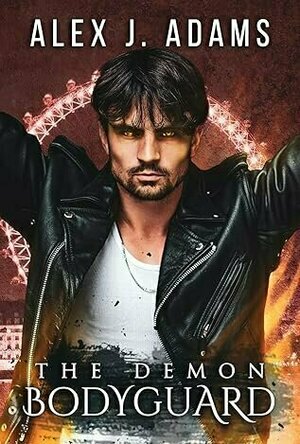
The Demon Bodyguard
Book
A fateful assignment leads to one fated mate! Zeke My brother, Mal, might have been happy to...
Lyndsey Gollogly (2893 KP) rated Kill Switch in Books
Feb 17, 2023
🔞🔞🔞
17 of 235
Kindle
Kill switch ( Devils Night book 3)
By Penelope Douglas
⭐️⭐️⭐️⭐️
"I've done far worse than what I went to prison for. She has no idea how bad this can get."
WINTER
Sending him to prison was the worst thing I could’ve done. It didn’t matter that he did the crime or that I wished he was dead. Perhaps I thought I’d have time to disappear before he got out or he’d cool off in jail and be anything but the horror he was.
But I was wrong. Three years came and went too fast, and now he’s anything but calm. Prison only gave him time to plan.
And while I anticipated his vengeance, I didn’t expect this.
He doesn’t want to make me hurt. He wants to make everything hurt.
DAMON
First thing’s first. Get rid of her daddy. He told them I forced her. He told them his little girl was a victim, but I was a kid, too, and she wanted it just as much as I did.
Step two… Give her, her sister, and her mother nowhere to run and no fuel to escape. The Ashby women are alone now and desperate for a knight in shining armor.
But that’s not what’s coming.
No, it’s time I listened to my father and took control of my future. It’s time I showed them all—my family, her family, my friends—that I will never change and that I have no other ambition than to be the nightmare of their lives.
Starting with her.
She’ll be so scared, she won’t even be safe in her own head by the time I’m done with her. And the best part is I won’t have to break into her home to do it.
As the new man of the house I have all the keys.
For gods sake this woman knows how to kick you in the guts with trauma! This has so many trigger warnings. This book makes you feel everything it’s quite graphic and she doesn’t hold back! Whether you like this series or not the woman writes abuse better than anyone I’ve read she gets you feeling all the emotions. I still can’t stand these men but there is a catalyst for each one of them that being the worlds worst parents they certainly didn’t do their kids any good. One thing I love is these women are strong and ruling the world is on the agenda!
17 of 235
Kindle
Kill switch ( Devils Night book 3)
By Penelope Douglas
⭐️⭐️⭐️⭐️
"I've done far worse than what I went to prison for. She has no idea how bad this can get."
WINTER
Sending him to prison was the worst thing I could’ve done. It didn’t matter that he did the crime or that I wished he was dead. Perhaps I thought I’d have time to disappear before he got out or he’d cool off in jail and be anything but the horror he was.
But I was wrong. Three years came and went too fast, and now he’s anything but calm. Prison only gave him time to plan.
And while I anticipated his vengeance, I didn’t expect this.
He doesn’t want to make me hurt. He wants to make everything hurt.
DAMON
First thing’s first. Get rid of her daddy. He told them I forced her. He told them his little girl was a victim, but I was a kid, too, and she wanted it just as much as I did.
Step two… Give her, her sister, and her mother nowhere to run and no fuel to escape. The Ashby women are alone now and desperate for a knight in shining armor.
But that’s not what’s coming.
No, it’s time I listened to my father and took control of my future. It’s time I showed them all—my family, her family, my friends—that I will never change and that I have no other ambition than to be the nightmare of their lives.
Starting with her.
She’ll be so scared, she won’t even be safe in her own head by the time I’m done with her. And the best part is I won’t have to break into her home to do it.
As the new man of the house I have all the keys.
For gods sake this woman knows how to kick you in the guts with trauma! This has so many trigger warnings. This book makes you feel everything it’s quite graphic and she doesn’t hold back! Whether you like this series or not the woman writes abuse better than anyone I’ve read she gets you feeling all the emotions. I still can’t stand these men but there is a catalyst for each one of them that being the worlds worst parents they certainly didn’t do their kids any good. One thing I love is these women are strong and ruling the world is on the agenda!
365Flicks (235 KP) rated The Hollow (2016) in Movies
Nov 20, 2019
Often all it takes for me to put a flick on is to see a name of an Actor that I have loved in other movies, this can often make me more forgiving and open to watch the next flick that comes along. When I received The Hollow for the intentions of reviewing. I was smacked in the face by two such names, William Sadler (Shawshank, Die Hard 2) and William Forsythe (Things to Do in Denver When Your Dead, The Rock). Neither actor is setting the world on fire as of late but as a movie fan you know your about to get some solid performances. I was not wrong.
The Hollow is yet another Small Town backwoods crime drama genre in a long line of VOD releases. The difference being that The Hollow has a certain amount of Backwoods charm to it that usually tends to fall flat upon replication, This is in no small part due to the performances driving the Flick. Writer, Director and Star Miles Doleac plays corrupt as balls Deputy Sheriff Ray Everett. In a town that seems to have been forgotten by the outside world Ray is able to function as a truly horrendous unlikable character, But fear not because just about everyone in this down is a bonafide Asshole. The movie kicks into gear fairly quickly when we witness a triple murder down by Make-Out Creek (Thats what they call places like that right). One of the victims being an under-age girl we witnessed barely 10 minutes ago giving Officer Ray some pretty bad head (Like a said he is a proper shit bag)… The FBI comes swarming into town when it is revealed one of the other victims is the daughter of a US Congressman. The game of small town cover up vs government stooges begins.
I’m not going to dive to deep into this flick because it is your standard by the numbers Crime/Drama. I said towards the start of this write-up that sometimes all it takes is a couple of names that you recognize as regular Jobbers who tend to put in solid performances and that is certainly one of the things this movie has going for it. Forsythe, Sadler and Jeff Fahey all being shining lights for me. Not to be out shone in his own movie though Doleac manages to portray a truly horrendous shit bag with no redeeming quality’s at all pretty expertly and that is where your Movie can live or die. Take nothing away from the supporting cast either they were all great just that most characters were fairly one dimensional.
Personally I feel like The Hollow is a good enough movie with some solid performances that you would be kept entertained. The script is not exactly Tarantino levels, while it does at times feel like thats what Doleac was going for, but as I said at the start when you sit down to this movie, you know what your getting.
Its a solid Recommend from 365HQ in a sea of by the numbers Crime/Dramas The Hollow has some pretty great performances and for the directors second Feature Film its a solid effort.
The Hollow is yet another Small Town backwoods crime drama genre in a long line of VOD releases. The difference being that The Hollow has a certain amount of Backwoods charm to it that usually tends to fall flat upon replication, This is in no small part due to the performances driving the Flick. Writer, Director and Star Miles Doleac plays corrupt as balls Deputy Sheriff Ray Everett. In a town that seems to have been forgotten by the outside world Ray is able to function as a truly horrendous unlikable character, But fear not because just about everyone in this down is a bonafide Asshole. The movie kicks into gear fairly quickly when we witness a triple murder down by Make-Out Creek (Thats what they call places like that right). One of the victims being an under-age girl we witnessed barely 10 minutes ago giving Officer Ray some pretty bad head (Like a said he is a proper shit bag)… The FBI comes swarming into town when it is revealed one of the other victims is the daughter of a US Congressman. The game of small town cover up vs government stooges begins.
I’m not going to dive to deep into this flick because it is your standard by the numbers Crime/Drama. I said towards the start of this write-up that sometimes all it takes is a couple of names that you recognize as regular Jobbers who tend to put in solid performances and that is certainly one of the things this movie has going for it. Forsythe, Sadler and Jeff Fahey all being shining lights for me. Not to be out shone in his own movie though Doleac manages to portray a truly horrendous shit bag with no redeeming quality’s at all pretty expertly and that is where your Movie can live or die. Take nothing away from the supporting cast either they were all great just that most characters were fairly one dimensional.
Personally I feel like The Hollow is a good enough movie with some solid performances that you would be kept entertained. The script is not exactly Tarantino levels, while it does at times feel like thats what Doleac was going for, but as I said at the start when you sit down to this movie, you know what your getting.
Its a solid Recommend from 365HQ in a sea of by the numbers Crime/Dramas The Hollow has some pretty great performances and for the directors second Feature Film its a solid effort.
Lee (2222 KP) rated Host (2020) in Movies
Sep 2, 2020
The concept of an entire movie playing out on a computer screen isn’t exactly a new one. A great example of this style of filmmaking was 2018 movie Searching, which I am a huge fan of. Back in 2014, Unfriended took the online chat room and managed to turn it into a horror movie, proving what could be achieved within such basic confines. And now, new Shudder horror Host continues in that theme, presenting us with a Zoom chat that goes horribly wrong.
Where Host differs from Unfriended is in its timely release. Filmed over a 12 week period during lockdown, and taking place entirely within the timeframe of a 60 minute Zoom call, Host portrays what we’ve all experienced in recent months – the socially distanced meetup with friends or colleagues online. And then it throws in some supernatural jump scares to terrify us into never wanting to participate in one ever again!
Host follows six friends, as they logon for their weekly Zoom catch-up. Only this time, Haley has suggested that they also hold an online séance, and has invited Irish spiritualist Seylan to join in and guide them through the experience. Before Seylan joins the chat though, we get to spend some time with the friends and you can’t help but feel at ease with the familiarity of seeing a group of people chatting together on screen, each in a different location. Even more so if you’re watching all of this play out on a small screen, as I was.
It’s clear from the start though that some of the group aren’t looking to take the séance too seriously, with one of them suggesting that they also play a drinking game. Whenever Seylan says the phrase “astral plane”, they decide they will try and down a drink without her realising what they’re up to. Consequently, it’s not long before one of the group has managed to ‘disrespect the spirits’, and when Seylan gets cut off the chat following connection issues, all manner of strange things begin happening to each of the group.
A number of them are in darkened rooms, so obviously you find yourself straining your eyes, searching for something out of the ordinary in every corner of the screen. There are the usual strange noises, lights flashing, with the occasional rational explanation behind it. And then there are plenty of big scares too – practical, effective effects that really pack a punch and are truly terrifying.
Important to all of this is the believability of our cast. Thankfully, their performances all feel believable, their friendship and conversation natural. I did find Teddy, the only male of the group, to be pretty annoying, but luckily he only appears briefly at the beginning and at the end of the movie.
Host came about after director and co-writer, Rob Savage, made a Zoom prank, which went viral after sharing on Twitter back in April. It’s a fortunate side effect of the pandemic that filmmakers have been forced to explore new and creative ways of making movies. And Host is an excellent, shining example of just how well that can pay off.
Where Host differs from Unfriended is in its timely release. Filmed over a 12 week period during lockdown, and taking place entirely within the timeframe of a 60 minute Zoom call, Host portrays what we’ve all experienced in recent months – the socially distanced meetup with friends or colleagues online. And then it throws in some supernatural jump scares to terrify us into never wanting to participate in one ever again!
Host follows six friends, as they logon for their weekly Zoom catch-up. Only this time, Haley has suggested that they also hold an online séance, and has invited Irish spiritualist Seylan to join in and guide them through the experience. Before Seylan joins the chat though, we get to spend some time with the friends and you can’t help but feel at ease with the familiarity of seeing a group of people chatting together on screen, each in a different location. Even more so if you’re watching all of this play out on a small screen, as I was.
It’s clear from the start though that some of the group aren’t looking to take the séance too seriously, with one of them suggesting that they also play a drinking game. Whenever Seylan says the phrase “astral plane”, they decide they will try and down a drink without her realising what they’re up to. Consequently, it’s not long before one of the group has managed to ‘disrespect the spirits’, and when Seylan gets cut off the chat following connection issues, all manner of strange things begin happening to each of the group.
A number of them are in darkened rooms, so obviously you find yourself straining your eyes, searching for something out of the ordinary in every corner of the screen. There are the usual strange noises, lights flashing, with the occasional rational explanation behind it. And then there are plenty of big scares too – practical, effective effects that really pack a punch and are truly terrifying.
Important to all of this is the believability of our cast. Thankfully, their performances all feel believable, their friendship and conversation natural. I did find Teddy, the only male of the group, to be pretty annoying, but luckily he only appears briefly at the beginning and at the end of the movie.
Host came about after director and co-writer, Rob Savage, made a Zoom prank, which went viral after sharing on Twitter back in April. It’s a fortunate side effect of the pandemic that filmmakers have been forced to explore new and creative ways of making movies. And Host is an excellent, shining example of just how well that can pay off.
BankofMarquis (1832 KP) rated The Dark Knight (2008) in Movies
Apr 16, 2018
Not a Masterpiece, but has a Masterful performance
With the DARK KNIGHT, Christopher Nolan kicks his movie's up a notch. His previous films were critical - but not necessarily commercial - successes. With the 2nd of his Batman trilogy, Nolan swings for the seats and in more ways than one, hits a home run.
THE DARK KNIGHT continues the "dark, realistic" Batman story line (based on the Frank Miller Graphic Novels of the same name) that Nolan started with BATMAN BEGINS. This film starts off simply enough - a "James Bond" type of opening action sequence that has Batman tying up some loose ends (specifically regarding the villain Scarecrow), but Nolan (and his brother, the Screenwriter Jonathan Nolan) do a clever thing, they interweave the introduction of a new villain, The Joker, into this universe.
While The Joker commits crime after crime, his real purpose is to bring chaos and anarchy to Gotham City - and he succeeds wonderfully well, despite the attempts of Batman, Alfred, Lucious Fox and Detective Jim Gordon to stop him.
As is befitting a criminal such as The Joker - and also, as befitting a big budget summer tent pole blockbuster film - the stunts of this film are amazing, over-the-top, explosive and LOUD. There are death defying stunts, breathlessly captured, long, screeching car chases (that's a good thing) and fight scenes that are well choreographed and are, by the most part, done "practically" (not with the aid of CGI), including a wonderful stunt of flipping a semi-truck and trailer up in the air and onto it's back by the nose of the truck.
These stunts would mean nothing if there wasn't some folks to root for and get behind - and this film has those characters - and performances - in spades with continued good work from Nolan "Dark Knight Trilogy" regulars Christian Bale (Batman/Bruce Wayne), Detective Jim Gordon (Gary Oldman), Alfred the Butler (Michael Caine, really shining here) and Lucious Fox (Morgan Freeman - a nice character add to this universe for this trilogy). This core really brings the goods, which is good, for the newcomers to this series - Aaron Eckhart's District Attorney Harvey Dent and Maggie Gillenhall taking over the role of Rachel Dawes (from Katie Holmes) are pretty bland in comparison.
But...all of them pale in comparison to the once-in-a-lifetime performance and character of Heath Ledger as The Joker. Ledger, as most of you know, rightfully won the Oscar for Best Supporting Actor for this role - a rare feat for a "comic book" movie. This is not only the Best Supporting Actor turn for 2008, but I would argue it is one of the best Supporting Actor turns of all-time. Anytime that Ledger is on the screen, your eye goes to him and you lose all sense of anything else that is going on. His look, his tics, his pauses, his vocal patterns, his mannerisms, his walk, ALL convey a sense of the character and added all up, it is quite something to behold.
Many, many have called this their favorite "comic book" film of all time, but I don't think I share that idea. While Nolan spent much of his time on the characters, the "look" of the film and the effects and stunts, he left the story a little too thin and the length of this film is a bit too long, for my tastes. I was most certainly looking at my watch during the "thrilling conclusion" of this film waiting for it to be done.
Now...to be fair...most of the reason for that is that I was exhausted watching Ledger's performance. He wore me out. But...that's a compliment, not a complaint.
Letter Grade: A-
8 (out of 10) stars and you can take that to the Bank(ofMarquis)
THE DARK KNIGHT continues the "dark, realistic" Batman story line (based on the Frank Miller Graphic Novels of the same name) that Nolan started with BATMAN BEGINS. This film starts off simply enough - a "James Bond" type of opening action sequence that has Batman tying up some loose ends (specifically regarding the villain Scarecrow), but Nolan (and his brother, the Screenwriter Jonathan Nolan) do a clever thing, they interweave the introduction of a new villain, The Joker, into this universe.
While The Joker commits crime after crime, his real purpose is to bring chaos and anarchy to Gotham City - and he succeeds wonderfully well, despite the attempts of Batman, Alfred, Lucious Fox and Detective Jim Gordon to stop him.
As is befitting a criminal such as The Joker - and also, as befitting a big budget summer tent pole blockbuster film - the stunts of this film are amazing, over-the-top, explosive and LOUD. There are death defying stunts, breathlessly captured, long, screeching car chases (that's a good thing) and fight scenes that are well choreographed and are, by the most part, done "practically" (not with the aid of CGI), including a wonderful stunt of flipping a semi-truck and trailer up in the air and onto it's back by the nose of the truck.
These stunts would mean nothing if there wasn't some folks to root for and get behind - and this film has those characters - and performances - in spades with continued good work from Nolan "Dark Knight Trilogy" regulars Christian Bale (Batman/Bruce Wayne), Detective Jim Gordon (Gary Oldman), Alfred the Butler (Michael Caine, really shining here) and Lucious Fox (Morgan Freeman - a nice character add to this universe for this trilogy). This core really brings the goods, which is good, for the newcomers to this series - Aaron Eckhart's District Attorney Harvey Dent and Maggie Gillenhall taking over the role of Rachel Dawes (from Katie Holmes) are pretty bland in comparison.
But...all of them pale in comparison to the once-in-a-lifetime performance and character of Heath Ledger as The Joker. Ledger, as most of you know, rightfully won the Oscar for Best Supporting Actor for this role - a rare feat for a "comic book" movie. This is not only the Best Supporting Actor turn for 2008, but I would argue it is one of the best Supporting Actor turns of all-time. Anytime that Ledger is on the screen, your eye goes to him and you lose all sense of anything else that is going on. His look, his tics, his pauses, his vocal patterns, his mannerisms, his walk, ALL convey a sense of the character and added all up, it is quite something to behold.
Many, many have called this their favorite "comic book" film of all time, but I don't think I share that idea. While Nolan spent much of his time on the characters, the "look" of the film and the effects and stunts, he left the story a little too thin and the length of this film is a bit too long, for my tastes. I was most certainly looking at my watch during the "thrilling conclusion" of this film waiting for it to be done.
Now...to be fair...most of the reason for that is that I was exhausted watching Ledger's performance. He wore me out. But...that's a compliment, not a complaint.
Letter Grade: A-
8 (out of 10) stars and you can take that to the Bank(ofMarquis)
BankofMarquis (1832 KP) rated Bombshell (2019) in Movies
Jan 31, 2020
Well acted - and important - film
The new Jay Roach film, BOMBSHELL - the Fox News sex scandal film - focuses on the struggles of 3 female protagonists - Gretchen Carlson (Nicole Kidman), Megyn Kelly (Charlize Theron) and Kayla Pospisil (Margot Robbie) - as they attempt to climb (or stay at the top of) the Corporate Ladder while battling sexism and a toxic work culture at Fox News. It is a powerful story that is a necessary tale in the "#MeToo" era that demands viewers to stand up and take notice.
And with powerhouse actresses leading this film - standing up and taking notice is an easy thing to do.
Based on factual events, BOMBSHELL portrays the sexism that female on air personalities encounter at FoxNews - a place filled with "good ol' boys" who patronize and sexualize the females in the office to the detriment of the females and the benefit and gratification of the males. Surprisingly, they are joined in this by some other females in the office who figure "better them than me". At the top of the office - and the toxic work culture - is Roger Ailes (an almost unrecognizable John Lithgow) who is hailed by Fox as the man who can create the news - and profits.
Kidman, Theron and Robbie are well cast in their roles, showing nuance, concern and strength as these negative conditions rear their ugly heads over and over again. All 3 produce powerhouse performances - certainly up there amongst the best of their careers - and Theron and Robbie are well deserved Oscar nominees for their performances. Kidman was NOT nominated for her performance, but she is just as deserving as the other two.
But, for me, the real surprise - and the best performance - of this film belongs to Lithgow's portrayal of Ailes. His characterization shows a real wolf, taking advantage of his status and position, to prey upon those in his office. It is a sly, evil performance of a sly, evil man. What impressed me the most is that this performance - and this character - could have easily gone "over the top" into "pure villain" territory and Lithgow resists this temptation - to the betterment of this film, but to the detriment of his Oscar chances.
As written by Charles Randolph (THE BIG SHORT) this film has a pacing/theming issue for the first 1/2 hour of this film. Is it a serious film? Is it sarcastic look at toxic masculinity work culture? Is it an indictment on our current society as a whole? Randolph's script uses some of the same tactics as THE BIG SHORT, having performers breaking the 4th wall and commenting and narrating the events while looking directly at the camera. While this tactic worked very well in THE BIG SHORT (if you haven't seen this film, I highly recommend you do), it works less well here and Director Jay Roach (TRUMBO) wisely drops that "gimmick" after the first 1/2 hour.
This film is filled with wonderful character actors making extended (and powerful) cameos. The likes of Kate McKinnon, Allyson Janney, Holland Taylor, Connie Britton, Stephen Root, Malcolm McDowell, Robin Weigert, Mark Duplass, Richard Kind, Mark Moses and Tricia Helfer all contribute greatly to the film while shining in the little screen time they have.
A necessary - and powerful - film filled with tremendous performances that shine a light on a problem that is pervasive today. Which makes this film a must watch - as difficult as it is to watch at times.
Letter Grade: A- (the first 1/2 hour brings it down a point)
8 stars (out of 10) and you can take that to the Bank(OfMarquis)
And with powerhouse actresses leading this film - standing up and taking notice is an easy thing to do.
Based on factual events, BOMBSHELL portrays the sexism that female on air personalities encounter at FoxNews - a place filled with "good ol' boys" who patronize and sexualize the females in the office to the detriment of the females and the benefit and gratification of the males. Surprisingly, they are joined in this by some other females in the office who figure "better them than me". At the top of the office - and the toxic work culture - is Roger Ailes (an almost unrecognizable John Lithgow) who is hailed by Fox as the man who can create the news - and profits.
Kidman, Theron and Robbie are well cast in their roles, showing nuance, concern and strength as these negative conditions rear their ugly heads over and over again. All 3 produce powerhouse performances - certainly up there amongst the best of their careers - and Theron and Robbie are well deserved Oscar nominees for their performances. Kidman was NOT nominated for her performance, but she is just as deserving as the other two.
But, for me, the real surprise - and the best performance - of this film belongs to Lithgow's portrayal of Ailes. His characterization shows a real wolf, taking advantage of his status and position, to prey upon those in his office. It is a sly, evil performance of a sly, evil man. What impressed me the most is that this performance - and this character - could have easily gone "over the top" into "pure villain" territory and Lithgow resists this temptation - to the betterment of this film, but to the detriment of his Oscar chances.
As written by Charles Randolph (THE BIG SHORT) this film has a pacing/theming issue for the first 1/2 hour of this film. Is it a serious film? Is it sarcastic look at toxic masculinity work culture? Is it an indictment on our current society as a whole? Randolph's script uses some of the same tactics as THE BIG SHORT, having performers breaking the 4th wall and commenting and narrating the events while looking directly at the camera. While this tactic worked very well in THE BIG SHORT (if you haven't seen this film, I highly recommend you do), it works less well here and Director Jay Roach (TRUMBO) wisely drops that "gimmick" after the first 1/2 hour.
This film is filled with wonderful character actors making extended (and powerful) cameos. The likes of Kate McKinnon, Allyson Janney, Holland Taylor, Connie Britton, Stephen Root, Malcolm McDowell, Robin Weigert, Mark Duplass, Richard Kind, Mark Moses and Tricia Helfer all contribute greatly to the film while shining in the little screen time they have.
A necessary - and powerful - film filled with tremendous performances that shine a light on a problem that is pervasive today. Which makes this film a must watch - as difficult as it is to watch at times.
Letter Grade: A- (the first 1/2 hour brings it down a point)
8 stars (out of 10) and you can take that to the Bank(OfMarquis)
Sarah (7800 KP) rated Toy Story (1995) in Movies
Jan 1, 2021
A masterpiece
Film #9 on the 100 Movies Bucket List: Toy Story
When Toy Story was first released in 1995, it was groundbreaking. The first ever fully computer animated film and the first released by Disney Pixar, this was also one of the first films I saw at the cinema as an 8 year old child. Admittedly at that age I was concentrating more on the colourful animated toys rather than appreciating the sheer wizardry on offer, but from repeated watches over the decades, I’ve come to fully recognise the sheer genius of this film.
Toy Story centres around the idea that toys are alive, a concept that most children would love to be true. It follows Woody, a cowboy voiced by Tom Hanks, who’s cushy existence as the top dog of Andy’s toys is disrupted by a new space ranger doll, Buzz Lightyear, voiced by Tim Allen. As Buzz soon becomes Andy’s favourite toy, Woody’s jealousy drives him to desperate measures that wind up with the pair of them becoming ‘lost toys’ and captives of evil neighbour Sid. And together with Buzz and Woody are a whole host of colourful and wacky toy characters, including Mr Potato Head (Don Rickles), Slinky Dog (Jim Varney), Etch-a Sketch and a bucketful of toy soldiers to name but a few of the childhood throwbacks on offer here.
Watching this back 25 years later, it’s hard to believe this film was released in the mid-90s. Whilst you can tell that more recent Disney Pixar releases have improved massively on the animation since Toy Story, the standard of the animation in this is hugely impressive. There are some studios that can’t master this level of detailed animation even now as we move into 2021. The feature and intricacies on show here is impressive, especially with the toy characters - you need to look no further than the scales on Rex (voiced memorably by Wallace Michael Shawn) as a shining example of this.
It isn’t just the animation that that makes Toy Story so brilliant though, it’s the entire package. It’s a heartwarming and often hilarious buddy story of sorts, with some strangely adult messages hidden in the childlike story (Buzz’s disillusionment at being a toy rather than a real space ranger is particularly poignant). As a child this made me believe my toys were alive, and as an adult I’m still hesitant about donating or throwing away old cuddly toys. It’s also full of what we’ve all come to know and love about Disney Pixar: a film suitable for kids but full of grown up innuendos and adult jokes that makes it appropriate for all ages. Alongside this it has a fantastic voice cast in household names Tom Hanks and Tim Allen, and of course brought us the first of many characters voiced by the unforgettable John Ratzenberger. And what further rounds this off is the catchy and touching original songs by Randy Newman. I doubt there are many people who haven’t heard “You’ve Got a Friend in Me”, a song that evokes such a warm and fuzzy feeling inside and is fully deserving of the ‘Best Original Song’ Oscar nomination.
Toy Story is undoubtedly a masterpiece in animation. Whilst it may not have aged incredibly well when comparing it with more recent releases, this is the film that first introduced us to the world of Disney Pixar and paved the way for all of those that have followed.
When Toy Story was first released in 1995, it was groundbreaking. The first ever fully computer animated film and the first released by Disney Pixar, this was also one of the first films I saw at the cinema as an 8 year old child. Admittedly at that age I was concentrating more on the colourful animated toys rather than appreciating the sheer wizardry on offer, but from repeated watches over the decades, I’ve come to fully recognise the sheer genius of this film.
Toy Story centres around the idea that toys are alive, a concept that most children would love to be true. It follows Woody, a cowboy voiced by Tom Hanks, who’s cushy existence as the top dog of Andy’s toys is disrupted by a new space ranger doll, Buzz Lightyear, voiced by Tim Allen. As Buzz soon becomes Andy’s favourite toy, Woody’s jealousy drives him to desperate measures that wind up with the pair of them becoming ‘lost toys’ and captives of evil neighbour Sid. And together with Buzz and Woody are a whole host of colourful and wacky toy characters, including Mr Potato Head (Don Rickles), Slinky Dog (Jim Varney), Etch-a Sketch and a bucketful of toy soldiers to name but a few of the childhood throwbacks on offer here.
Watching this back 25 years later, it’s hard to believe this film was released in the mid-90s. Whilst you can tell that more recent Disney Pixar releases have improved massively on the animation since Toy Story, the standard of the animation in this is hugely impressive. There are some studios that can’t master this level of detailed animation even now as we move into 2021. The feature and intricacies on show here is impressive, especially with the toy characters - you need to look no further than the scales on Rex (voiced memorably by Wallace Michael Shawn) as a shining example of this.
It isn’t just the animation that that makes Toy Story so brilliant though, it’s the entire package. It’s a heartwarming and often hilarious buddy story of sorts, with some strangely adult messages hidden in the childlike story (Buzz’s disillusionment at being a toy rather than a real space ranger is particularly poignant). As a child this made me believe my toys were alive, and as an adult I’m still hesitant about donating or throwing away old cuddly toys. It’s also full of what we’ve all come to know and love about Disney Pixar: a film suitable for kids but full of grown up innuendos and adult jokes that makes it appropriate for all ages. Alongside this it has a fantastic voice cast in household names Tom Hanks and Tim Allen, and of course brought us the first of many characters voiced by the unforgettable John Ratzenberger. And what further rounds this off is the catchy and touching original songs by Randy Newman. I doubt there are many people who haven’t heard “You’ve Got a Friend in Me”, a song that evokes such a warm and fuzzy feeling inside and is fully deserving of the ‘Best Original Song’ Oscar nomination.
Toy Story is undoubtedly a masterpiece in animation. Whilst it may not have aged incredibly well when comparing it with more recent releases, this is the film that first introduced us to the world of Disney Pixar and paved the way for all of those that have followed.
Sarah (7800 KP) rated Ma Rainey's Black Bottom (2020) in Movies
Jan 30, 2021
Boseman is amazing
Ma Rainey’s Black Bottom is the latest adaptation of the works of August Wilson brought to us by producer Denzel Washington, following on from the 2016 adaptation of Fences that earned Viola Davis a Best Supporting Actress Oscar. Here Washington hands over the directing reins to Tony award winner George C. Wolfe, while Viola Davis returns as the titular Ma Rainey.
Set in 1920s Chicago, the film follows a tense and fractious recording session with Ma Rainey and her backing band, old hands Toledo (Glynn Turman), Cutler (Colman Domingo) and Slow Drag (Michael Potts) alongside ambitious young horn player Levee (Chadwick Boseman). Tensions rise between Ma, Levee and the recording studio management (Jeremy Shamos as Irvin and Jonny Coyne as Sturdyvant) as each attempts to control the recording session and play songs that fit best with their own motives. Contributing to the frictions are Levee’s flirtation with Ma’s girlfriend Dussie Mae (Taylour Paige) and her Ma’s stuttering nephew Sylvester (Dusan Brown) as he attempts to introduce Ma’s signature song, Black Bottom.
Ma Rainey’s Black Bottom undoubtedly looks and sounds good. The cinematography and costumes are perfect and entirely in keeping with the 20s Chicago setting. And the blues music is captivating and beautifully made. To be quite honest I would’ve been quite happy to watch and listen to an entire film solely following the band and their music. However whilst it does look and sound good, it is so obviously a film adapted from a stage play and I’m afraid this isn’t a good thing. There’s a limited number of sets and virtually the entirety of the 90 minute run time is set within two rooms in the recording studio, which makes such a short film feel ridiculously drawn out. This isn’t helped by the huge reliance on very long scripted dialogue and conversational scenes. I can’t deny that the writing is good and is helped by strong performances from everyone involved, but there’s just too much dialogue. This might work on the stage, but on screen it doesn’t quite translate. There’s that much dialogue that the majority of scenes become too heavy and bogged down and sadly almost entirely forgettable. For me a film needs to balance dialogue with actual events and actions, and I’m afraid aside from the final act, nothing much happens here.
Fortunately this is at least boosted by some stellar performances. Viola Davis is brilliant as the spirited Ma Rainey, even if Ma herself as a character is rather unlikeable with some questionable motives for her actions and manners. The star however is the late Chadwick Boseman. While it’s very off putting to see how obviously thin and ill he was filming this, his performance is outstanding. He brings life and fun and heart to every scene he’s in and gives this film a massive boost. Even the drawn out dialogue heavy scenes become enthralling when he’s talking and the emotions on show are spectacular. Despite Viola Davis being the star as Ma, it’s Boseman that carried this film entirely on his shoulders. If he doesn’t win a posthumous Oscar for this, it’d be criminal.
Ma Rainey’s Black Bottom is a shining example of stellar performances, most notably Chadwick Boseman. It’s just a shame that the rest of the film doesn’t quite meet the high standards set by its stars.
Set in 1920s Chicago, the film follows a tense and fractious recording session with Ma Rainey and her backing band, old hands Toledo (Glynn Turman), Cutler (Colman Domingo) and Slow Drag (Michael Potts) alongside ambitious young horn player Levee (Chadwick Boseman). Tensions rise between Ma, Levee and the recording studio management (Jeremy Shamos as Irvin and Jonny Coyne as Sturdyvant) as each attempts to control the recording session and play songs that fit best with their own motives. Contributing to the frictions are Levee’s flirtation with Ma’s girlfriend Dussie Mae (Taylour Paige) and her Ma’s stuttering nephew Sylvester (Dusan Brown) as he attempts to introduce Ma’s signature song, Black Bottom.
Ma Rainey’s Black Bottom undoubtedly looks and sounds good. The cinematography and costumes are perfect and entirely in keeping with the 20s Chicago setting. And the blues music is captivating and beautifully made. To be quite honest I would’ve been quite happy to watch and listen to an entire film solely following the band and their music. However whilst it does look and sound good, it is so obviously a film adapted from a stage play and I’m afraid this isn’t a good thing. There’s a limited number of sets and virtually the entirety of the 90 minute run time is set within two rooms in the recording studio, which makes such a short film feel ridiculously drawn out. This isn’t helped by the huge reliance on very long scripted dialogue and conversational scenes. I can’t deny that the writing is good and is helped by strong performances from everyone involved, but there’s just too much dialogue. This might work on the stage, but on screen it doesn’t quite translate. There’s that much dialogue that the majority of scenes become too heavy and bogged down and sadly almost entirely forgettable. For me a film needs to balance dialogue with actual events and actions, and I’m afraid aside from the final act, nothing much happens here.
Fortunately this is at least boosted by some stellar performances. Viola Davis is brilliant as the spirited Ma Rainey, even if Ma herself as a character is rather unlikeable with some questionable motives for her actions and manners. The star however is the late Chadwick Boseman. While it’s very off putting to see how obviously thin and ill he was filming this, his performance is outstanding. He brings life and fun and heart to every scene he’s in and gives this film a massive boost. Even the drawn out dialogue heavy scenes become enthralling when he’s talking and the emotions on show are spectacular. Despite Viola Davis being the star as Ma, it’s Boseman that carried this film entirely on his shoulders. If he doesn’t win a posthumous Oscar for this, it’d be criminal.
Ma Rainey’s Black Bottom is a shining example of stellar performances, most notably Chadwick Boseman. It’s just a shame that the rest of the film doesn’t quite meet the high standards set by its stars.
